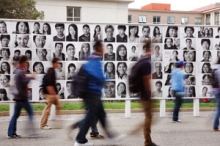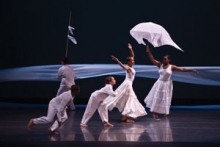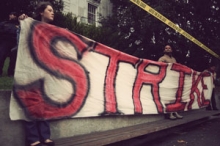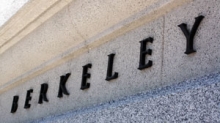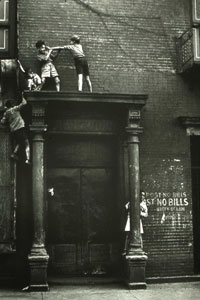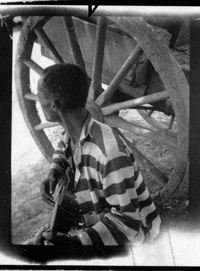Professor David A. Hollinger asks a question that our conversations in Berkeley this past year have tended to skirt: In the specific tax environment that now exists in California, does our historic standing as a public university remain compatible with our equally historic standing as a campus of intellectual distinction?
Matías Tarnopolsky, director of Cal Performances, expresses his hope that we too do not have to choose between having a society that supports the performing arts at the expense of other fundamental needs.
While humanists and scientists now recognize themselves as part of the larger research university, today more worrisome gaps lie between the research university and its public.
Professor Carolyn Merchant argues that in cities that are increasingly urban, art could play a formative role in changing personal behavior and public policy on the climate change.
Professors Peter Glazer and Gregory Levine, members of SAVE the University, argue that we must find our common ground and strengthen UC Berkeley as an unmistakable and unalienable part of the shared public good of California.
Professor Shannon Jackson argues that the great and diverse “we” that is the University of California will be threatened if our funding streams create more impulses to separate “mine” from “yours.”
Professors Rick Kern and Niek Veldhuis discuss what the study of “visible language” (i.e., writing and signing, as well as notated forms of music and dance) can tell us about construing and sharing meanings, and, ultimately, about our understanding of ourselves in relation to the world.
The California Master Plan speaks of “state-supported higher education.” There is a good reason.
Government has two moral missions: protection and empowerment for all its citizens. Protection goes beyond police and law enforcement to protections for consumers, workers, the environment, investors, retirees, and victims of disease, injury, and natural disasters. Empowerment includes public roads and buildings; adequate systems for communication, energy, and water; functioning banking and insurance systems; and of course, education.
Doctoral candidate Elizabeth Gand shows how, In her thoughtful approach to urban children’s play, Helen Levitt found a way to negate reigning assumptions about childhood, urban social life, and photographic representation, while simultaneously speaking to her cultural moment.
Professor Bryan Wagner considers how the concept of blackness creates problems for anyone who wants to talk about it as founding a tradition and outlines how his new book addresses this predicament.
